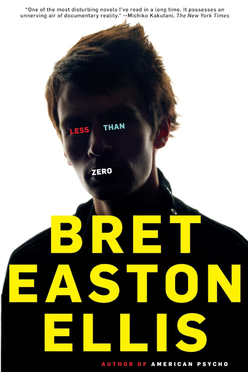Less Than Zero

Bret Easton Ellis’s debut novel is a powerhouse of existential horror. Narrated by Clay, an affluent college freshman, who returns home to Los Angeles for winter break in the early 80s.
Clay drifts through parties and clubs. He connects to nothing and no one, numb to life. His peers share his disillusion. Drugs and sex are matter-of-fact vices to pass the monotony. Ellis articulates the quiet desperation in a scene that floored me:
“I want to go back,” Daniel says, quietly, with effort. “Where?” I ask, unsure. There’s a long pause that kind of freaks me out and Daniel finishes his drink and fingers the sunglasses he’s still wearing and says, “I don’t know. Just back.”
I loved how Clay’s detachment constrains Ellis, forcing him to show versus tell because Clay can’t tell us anything. Consider this passage that illustrates Clay’s empty life:
I tried to keep a datebook one summer, but it didn’t work out. I’d get confused and write down things just to write them down and I came to this realization that I didn’t do enough things to keep a datebook.
An existentialist adrift in a sea of nihilists, Clay’s search for meaning leads him to the depths of depravity in the novel’s final third. There’s a gut-punch ending here Ellis misses. Too many prologues. Not a fatal flaw, and given he was only 21 when he wrote it, this stands as an impressive effort, and one of the most unsettling novels I’ve read.
Reading History
- 2022Apr2SatKindle (Vintage Contemporaries)
Read over 12 Days
- 22 Mar 202217%
- 23 Mar 202233%
- 27 Mar 202250%
- 28 Mar 202266%
- 2 Apr 2022Finished